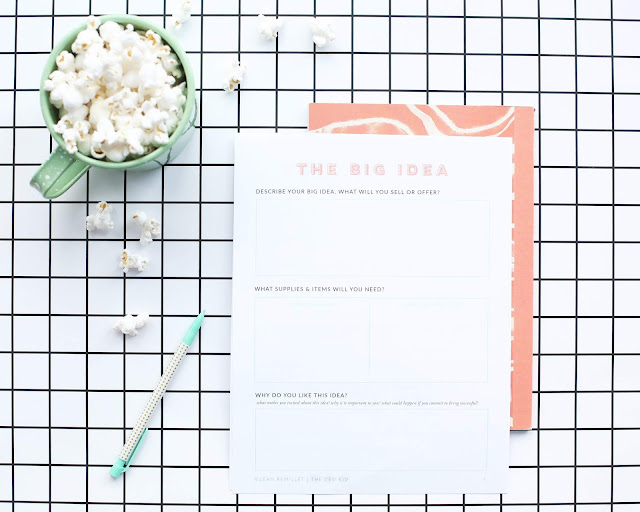5 Financial Mistakes I Made in My Early 20's - Millennial Money
Hello and welcome.
Shaking it up today to discuss 5 financial mistakes I made in my early 20's. With everything going on at the moment finances can be a huge cause of stress. While I have no professional experience in finance I've made mistakes along the way that hopefully, you can learn from.
ONE - NOT TRACKING MY MONEY
I've never been in debt so I thought I was good with money. While I wasn't bad with money, I certainly wasn't good. I didn't have debt, but I also didn't have a healthy savings account. I covered my bills and spent what was left. If I had tracked my money I would have seen how much I was wasting on takeaway coffees, snacks, doubling up on transport costs etc. By not tracking my spending I was failing to plan for the future and practically burning through money.
TWO - SPENDING ON AN UNSUSTAINABLE LIFESTYLE
For most of my early 20's I was in fulltime education with a part-time job working around 20 hours a week as a waitress and later consulting for an Architecture practice. Yet I was spending more on coffee and transport than I do now, I was making around 20% of my current income. I wouldn't dream of wasting money like that now because I'm not a millionaire and I'd rather invest the money than waste it on a £3.50 coffee.
Spending for the life you want when you don't have the income for it takes you further away from your longterm goals. Fake it 'til you make it is NOT the answer when it comes to money, you'll just end up broke and be living paycheck to paycheck.
THREE - NOT MOVING MONEY AROUND
I had some money in savings but I was losing potential income by letting it sit in zero-interest accounts. I should have been moving my money to dedicated savings accounts with high-interest rates. An ISA (cash or investment) would have been a good option.
(Updated numbers - Thanks Michael)
E.g. £500 initial deposit into an account with an AER/Gross p.a of 1.5%. Over 2 years with no additional monthly deposits I could have made £15.22 in interest.
The same account, if you deposit £50 a month your interest total at the end of the 2 years, will be £34.15 with an account balance of £1,734.15
Often you'll get a great interest rate in the first year and it'll drop in the second. Take advantage of this, pull your money out and reap the benefits from the next sign up bonus.
FOUR - NOT HAVING AN EMERGENCY FUND
My savings was my emergency fund, if anything went wrong I'd have been back to zero. It's recommended you have around 3-6 months worth saved in an emergency fund. Work out what you need to live on to cover all your bills, multiply it the number of months and that's your target. If you're starting to save now this should be your first financial target, it's your safety net and will provide security for all other decisions you make going forward.
I have a car that has cost me a small fortune over the 8 years I've owned it, those repairs drained my savings on multiple occasions. My emergency fund now sits quaking in anticipation for the next hit, but I have peace of mind knowing it won't impact my other saving goals.
FIVE - TELLING MYSELF FINANCIAL LIES
Being a student at the time I told myself I was allowed to be a bit irresponsible with my spending, it was ok to buy all of those takeaway coffees because I NEEDED it. I could have easily made a coffee to take with me from home and saved the money. A lot of my friends were complaining about having no money at the end of the month so I thought that was how it should be as a student. Older adults kept saying it was ok, I was just a 'poor student' - but I didn't have to be. Your employment status doesn't define your financial state. Anyone can live paycheck to paycheck, even a millionaire.
Ditch the takeaway coffee and pack your lunches, future you will thank you for it.
Recommendations:
Book - Rich Dad Poor Dad
Youtube - Graham Stephan
Images:
Pig - Fabian Blank
Sign - Austin Chan
Shaking it up today to discuss 5 financial mistakes I made in my early 20's. With everything going on at the moment finances can be a huge cause of stress. While I have no professional experience in finance I've made mistakes along the way that hopefully, you can learn from.
ONE - NOT TRACKING MY MONEY
I've never been in debt so I thought I was good with money. While I wasn't bad with money, I certainly wasn't good. I didn't have debt, but I also didn't have a healthy savings account. I covered my bills and spent what was left. If I had tracked my money I would have seen how much I was wasting on takeaway coffees, snacks, doubling up on transport costs etc. By not tracking my spending I was failing to plan for the future and practically burning through money.
TWO - SPENDING ON AN UNSUSTAINABLE LIFESTYLE
For most of my early 20's I was in fulltime education with a part-time job working around 20 hours a week as a waitress and later consulting for an Architecture practice. Yet I was spending more on coffee and transport than I do now, I was making around 20% of my current income. I wouldn't dream of wasting money like that now because I'm not a millionaire and I'd rather invest the money than waste it on a £3.50 coffee.
Spending for the life you want when you don't have the income for it takes you further away from your longterm goals. Fake it 'til you make it is NOT the answer when it comes to money, you'll just end up broke and be living paycheck to paycheck.
THREE - NOT MOVING MONEY AROUND
I had some money in savings but I was losing potential income by letting it sit in zero-interest accounts. I should have been moving my money to dedicated savings accounts with high-interest rates. An ISA (cash or investment) would have been a good option.
(Updated numbers - Thanks Michael)
E.g. £500 initial deposit into an account with an AER/Gross p.a of 1.5%. Over 2 years with no additional monthly deposits I could have made £15.22 in interest.
The same account, if you deposit £50 a month your interest total at the end of the 2 years, will be £34.15 with an account balance of £1,734.15
Often you'll get a great interest rate in the first year and it'll drop in the second. Take advantage of this, pull your money out and reap the benefits from the next sign up bonus.
FOUR - NOT HAVING AN EMERGENCY FUND
My savings was my emergency fund, if anything went wrong I'd have been back to zero. It's recommended you have around 3-6 months worth saved in an emergency fund. Work out what you need to live on to cover all your bills, multiply it the number of months and that's your target. If you're starting to save now this should be your first financial target, it's your safety net and will provide security for all other decisions you make going forward.
I have a car that has cost me a small fortune over the 8 years I've owned it, those repairs drained my savings on multiple occasions. My emergency fund now sits quaking in anticipation for the next hit, but I have peace of mind knowing it won't impact my other saving goals.
FIVE - TELLING MYSELF FINANCIAL LIES
Being a student at the time I told myself I was allowed to be a bit irresponsible with my spending, it was ok to buy all of those takeaway coffees because I NEEDED it. I could have easily made a coffee to take with me from home and saved the money. A lot of my friends were complaining about having no money at the end of the month so I thought that was how it should be as a student. Older adults kept saying it was ok, I was just a 'poor student' - but I didn't have to be. Your employment status doesn't define your financial state. Anyone can live paycheck to paycheck, even a millionaire.
Ditch the takeaway coffee and pack your lunches, future you will thank you for it.
Recommendations:
Book - Rich Dad Poor Dad
Youtube - Graham Stephan
Images:
Pig - Fabian Blank
Sign - Austin Chan











Comments
Post a Comment